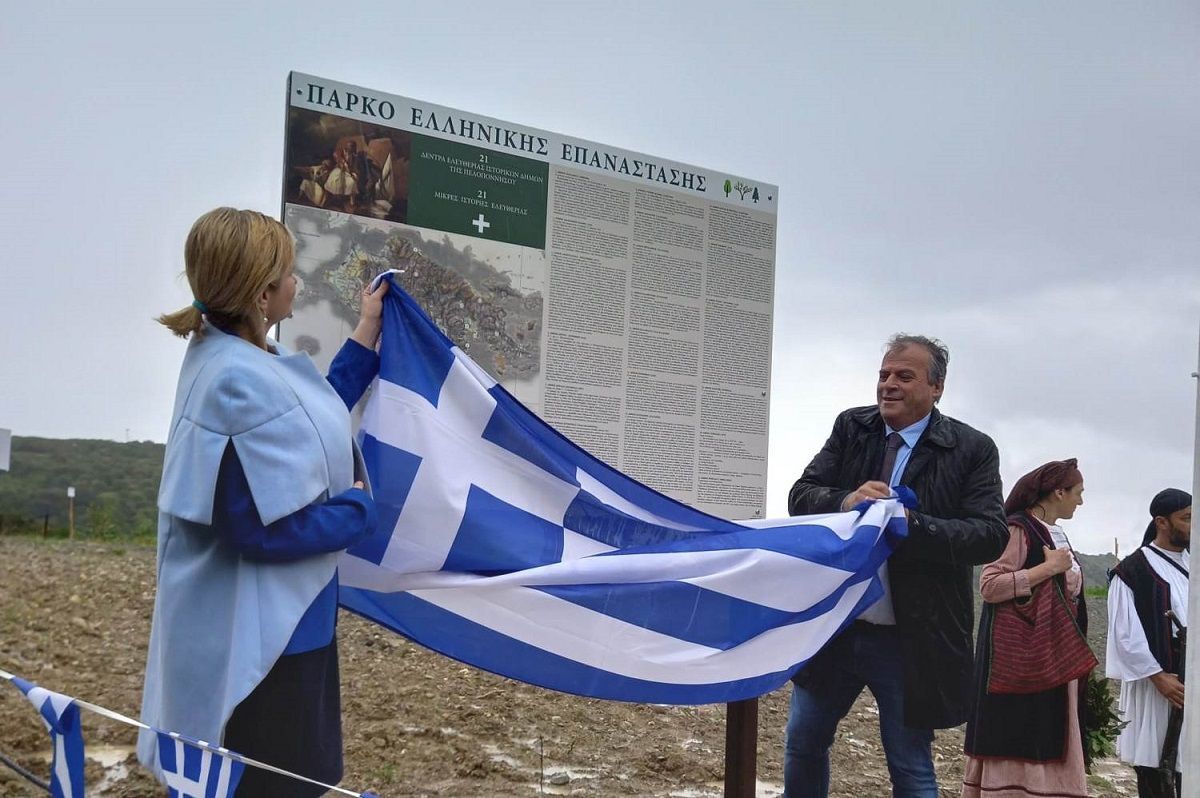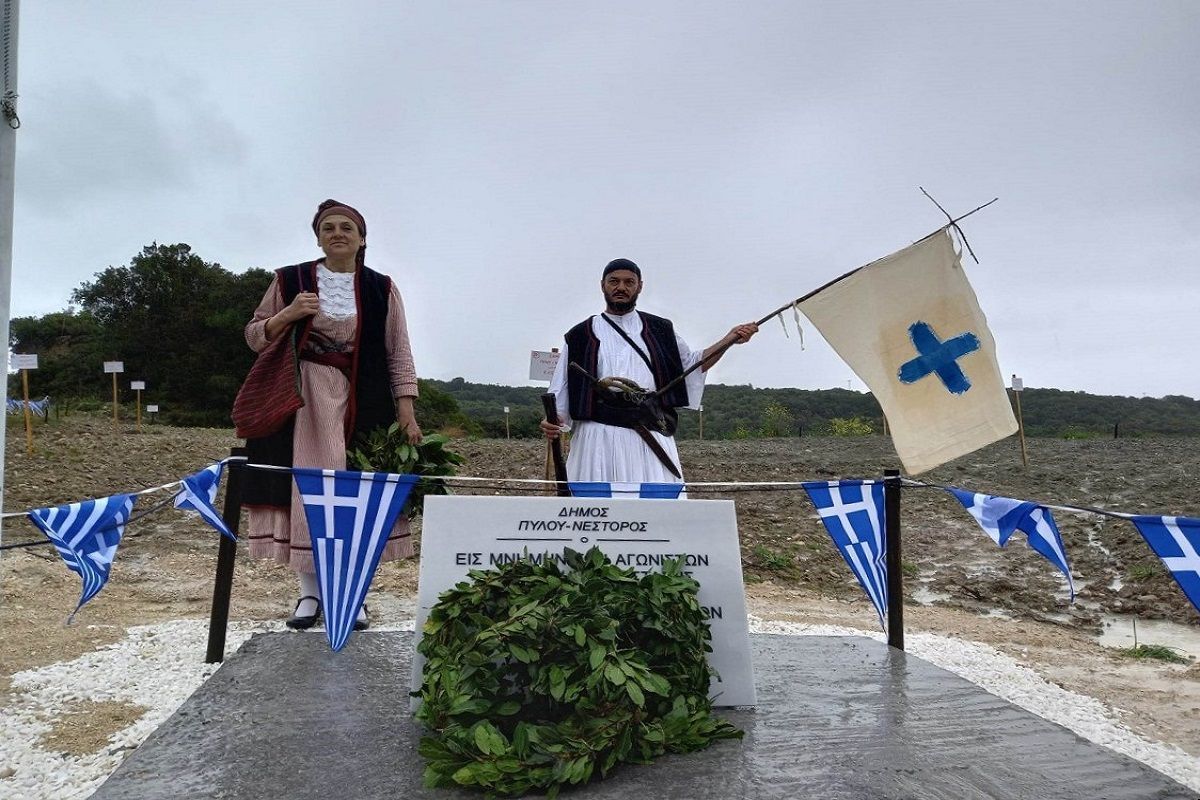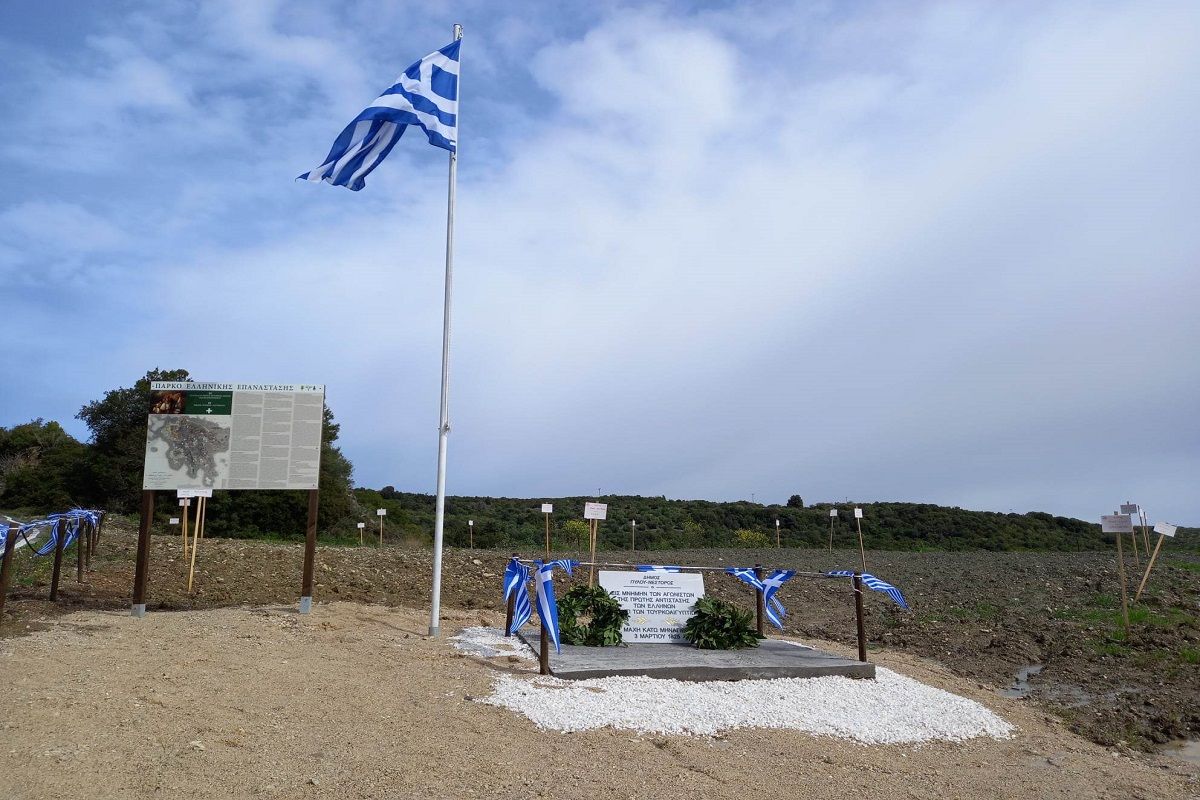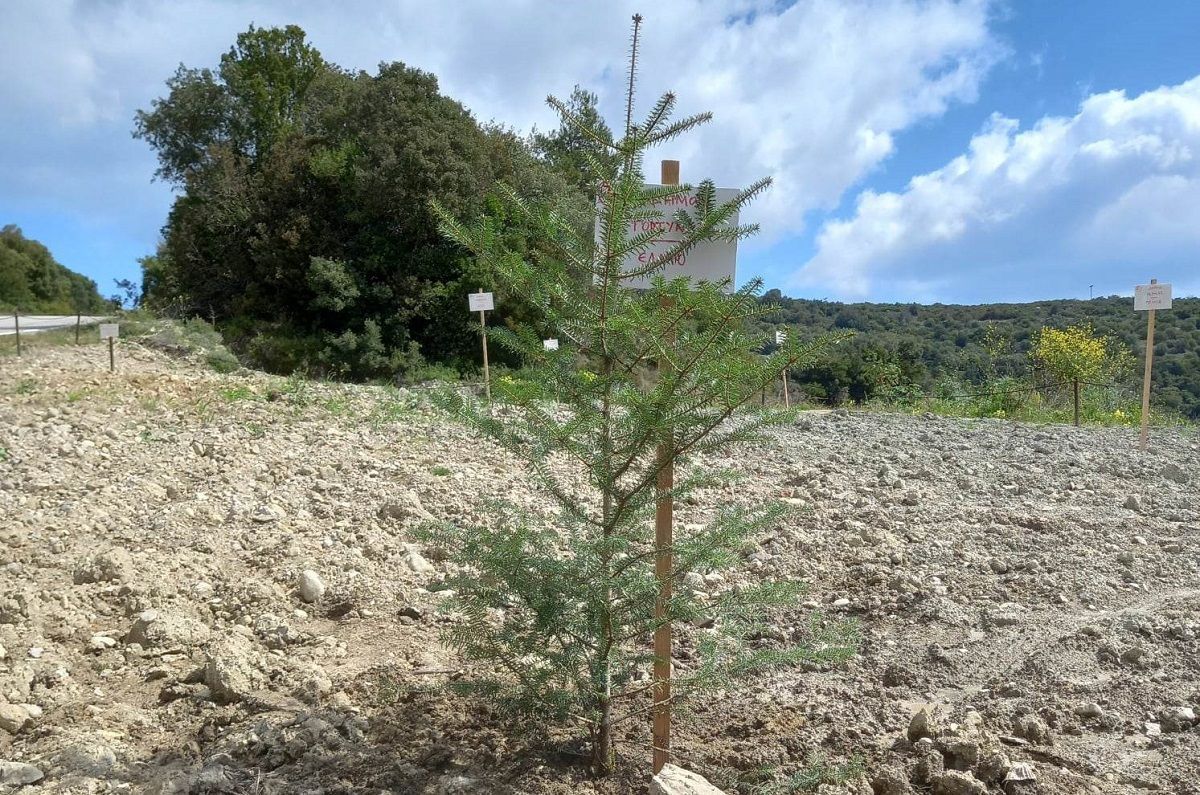Greek Revolution Park in Messinia Opens to the Public
A new park dedicated to the 1821 Greek Revolution recently opened its gates to the public in Messinia, Peloponnese.
The park, inaugurated on March 17, is the result of the anniversary research program “Greek Revolution Centennial Trees Network” and is a candidate for inclusion in the UNESCO National Index of Intangible Cultural Heritage list.
The Greek Revolution Park was created through a collaboration between the Cultural Institute of Messinia and the Municipality of Pylos-Nestoros, as well as with the assistance of 20 historic municipalities of the Peloponnese.

Greek Parliament Environment Committee President Dionysia-Theodora Avgerinopoulou with Pylos-Nestoros Mayor Panayiotis Karvelas. Photo source: Cultural Institute of Messinia.
The inauguration event began with a doxology at the Kato Ambelokipi church of St. Constantine and St. Helen in memory of the fallen heroes of the March 1825 Greek Revolution battle of Kato Minagia.
The ceremony was followed by speeches from cultural studies PhD candidate from the Peloponnese University Demosthenis Kordos, and the president of the Greek Parliament Environment Committee President Dionysia-Theodora Avgerinopoulou.
Representatives from the 21 historical municipalities of the Peloponnese, including Messinia Deputy Governor Andreas Tsoukalas and the Pylos-Nestoros Mayor Panayiotis Karvelas were also present at the event.
The park is located on the borders between the historical settlement of Kato Ampelokipi and the Pylos-Nestoros Municipality.
It features a rare map of the Peloponnese from the period of the Greek Revolution, created by the French Scientific Mission of Moria. Its entrance panel also depicts the places of origin of the 21 “trees of freedom” that were planted in the park.
Additionally, 21 “Little Stories of Freedom” from the Greek Revolution are included in the park’s entrance panel, providing visitors with a holistic view of the “human geography” of the revolution in the Peloponnese.
The park is expected to host cultural and environmental events of the 21 historical municipalities of the Peloponnese and serve as an educational hub for primary and secondary schools in the area.







